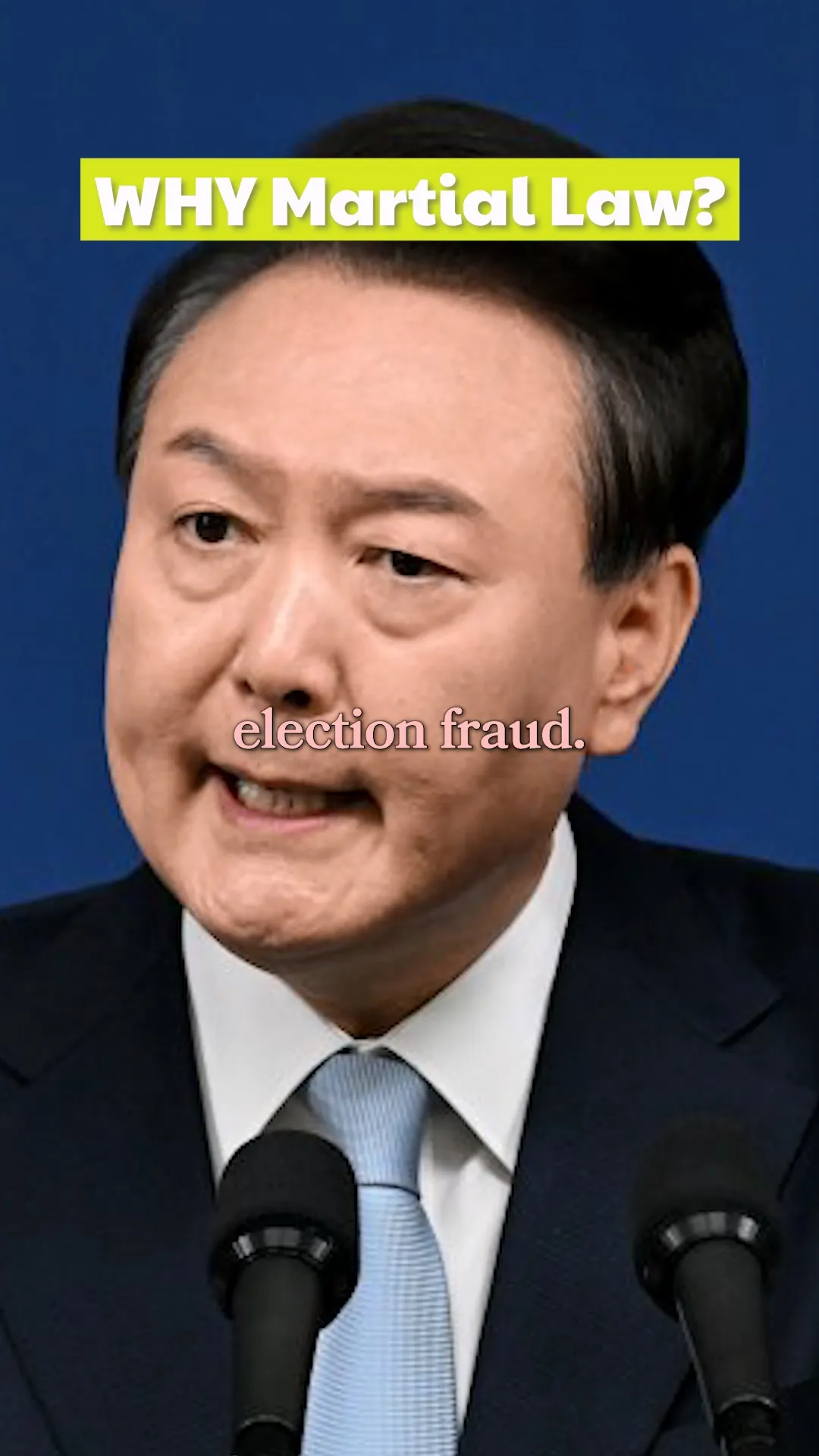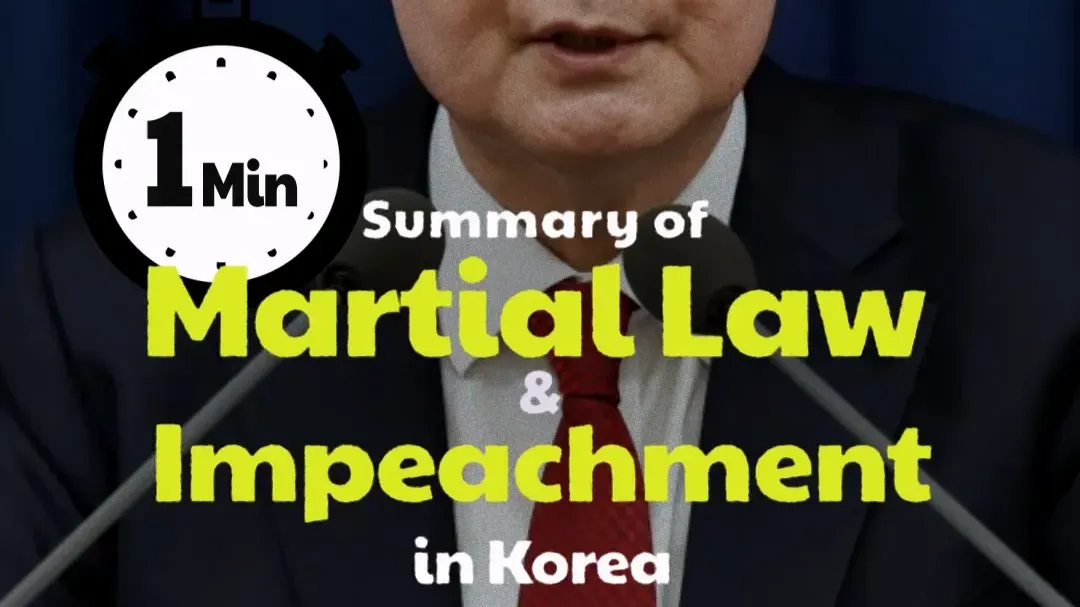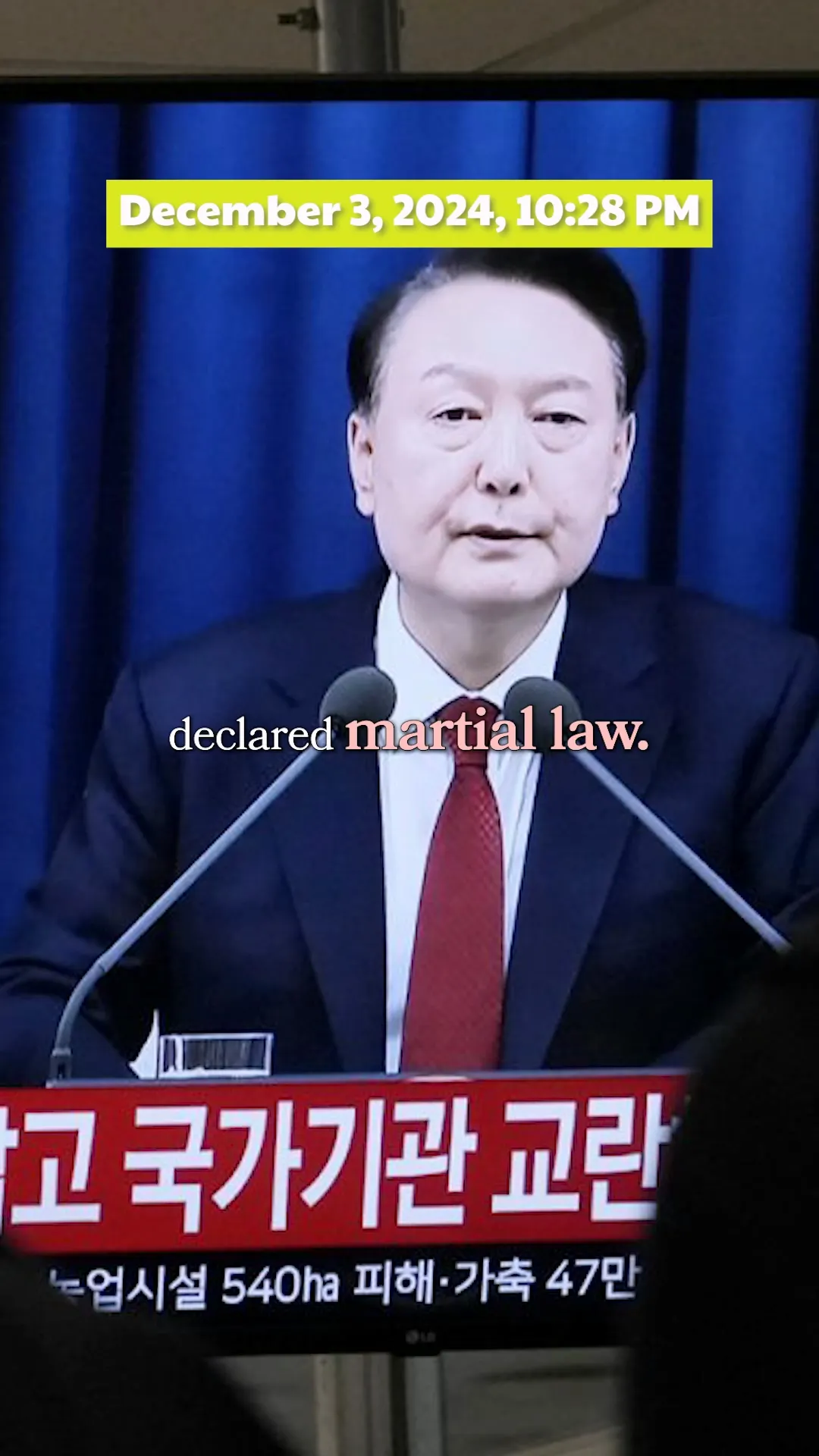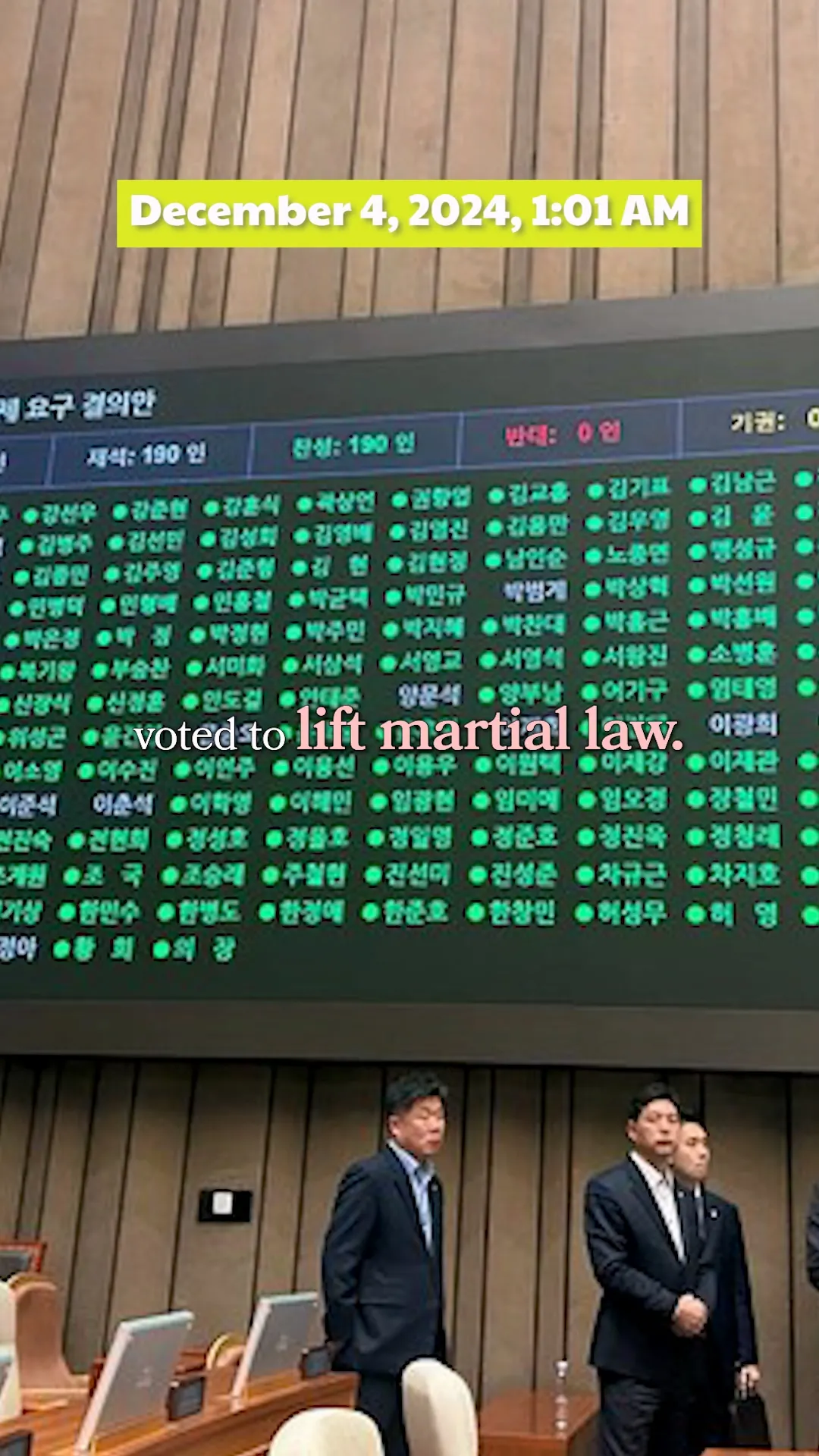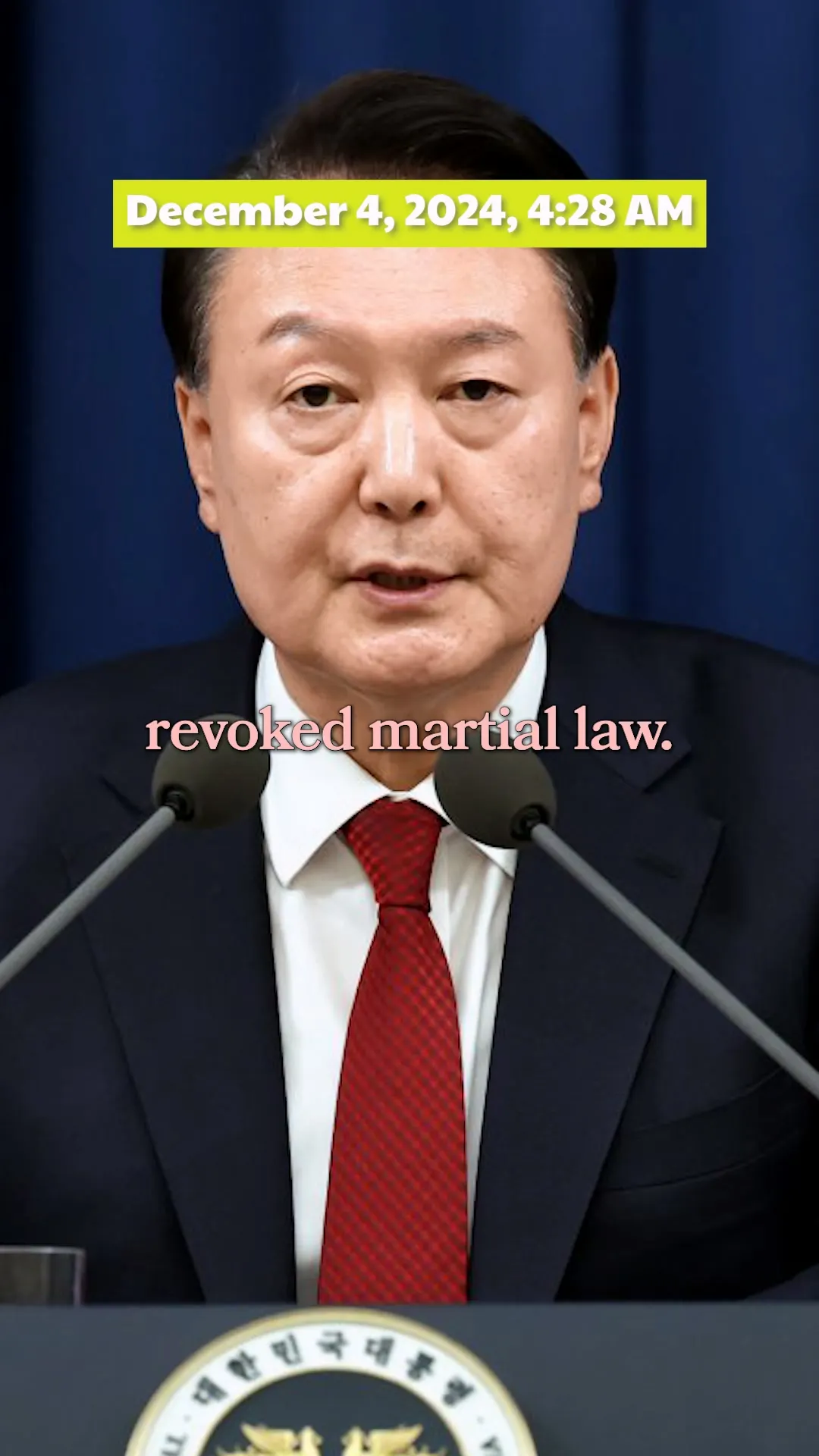A One-Minute Summary of Martial Law and Impeachment in Korea
South Korea’s democracy has faced yet another critical test.
On December 3, 2024, President Yoon declared martial law amid accusations of government paralysis and election fraud. Just a week later, he faced impeachment proceedings that have rocked the nation's political landscape. But how did we get here? Let’s dive into the details of this high-stakes drama.
Key Events: What Happened?
Martial Law Declared:
On December 3, 2024, at precisely 10:28 PM, President Yoon shocked the nation by declaring martial law. The announcement came amidst heightened political tensions, with the government citing severe disruptions caused by the opposition's budget cuts and allegations of electoral fraud.
Martial Law Lifted:
In an unprecedented turn of events, the National Assembly acted swiftly, voting at 1:01 AM on December 4 to demand the lifting of martial law. By 4:28 AM, just hours after it began, President Yoon officially revoked the order.
The Fallout:
The declaration and abrupt reversal of martial law only fueled public and political outrage. Accusations of abuse of power and chaos creation emerged, leading to calls for impeachment from both opposition leaders and some members of the ruling party.
The Reasons Behind Martial Law
President Yoon justified his controversial decision by pointing to a government deadlock allegedly orchestrated by the opposition party. He accused them of slashing critical budgets and propagating baseless claims of election fraud. The declaration of martial law, according to Yoon, was a last-resort measure to stabilize the nation.
However, critics argue that these actions only deepened the crisis, undermining public trust in his leadership and the broader political system.
The Impeachment Process
Impeachment Motion Passed:
On December 7, 2024, the National Assembly passed a motion to impeach President Yoon. Following intense deliberations and public pressure, the motion was confirmed in a second vote on December 14, 2024.
What’s Next?:
The Supreme Court now holds the key to South Korea's political future. They have a timeline of 3-6 months to decide whether the impeachment will be upheld or dismissed. Until then, the presidency remains in limbo, and the country awaits a decisive verdict.
The People’s Voice
South Korea’s streets became the stage for a powerful display of democratic activism. Nearly one million citizens braved freezing temperatures to participate in peaceful protests. Their message was clear: they demanded accountability and swift action from lawmakers to preserve the integrity of democracy.
A History of Presidential Impeachments
This marks the third time in South Korea’s history that a sitting president has faced impeachment. Out of the previous two cases, one was upheld, leading to the removal of the president, while the other was dismissed.
President Yoon’s case is a stark reminder of South Korea’s vibrant democratic spirit, where leaders are held accountable by both the institutions and the people.
South Korea stands at a pivotal moment, with its democratic processes under intense scrutiny. The ongoing impeachment trial of President Yoon highlights the nation's resilience and commitment to upholding the rule of law. As the world watches, South Korea’s citizens continue to showcase their active participation in shaping their political future. Will this chapter end with a strengthened democracy, or will it deepen divisions? Only time will tell.
Keywords
Keywords: Martial law, South Korea impeachment, President Yoon, democratic crisis, peaceful protests, Supreme Court verdict, political turmoil, government paralysis, election fraud, budget cuts, National Assembly vote, public demonstrations, impeachment proceedings, Korea’s democracy, presidential accountability, rule of law, democratic activism, political stability, Korean politics, civic engagement.
